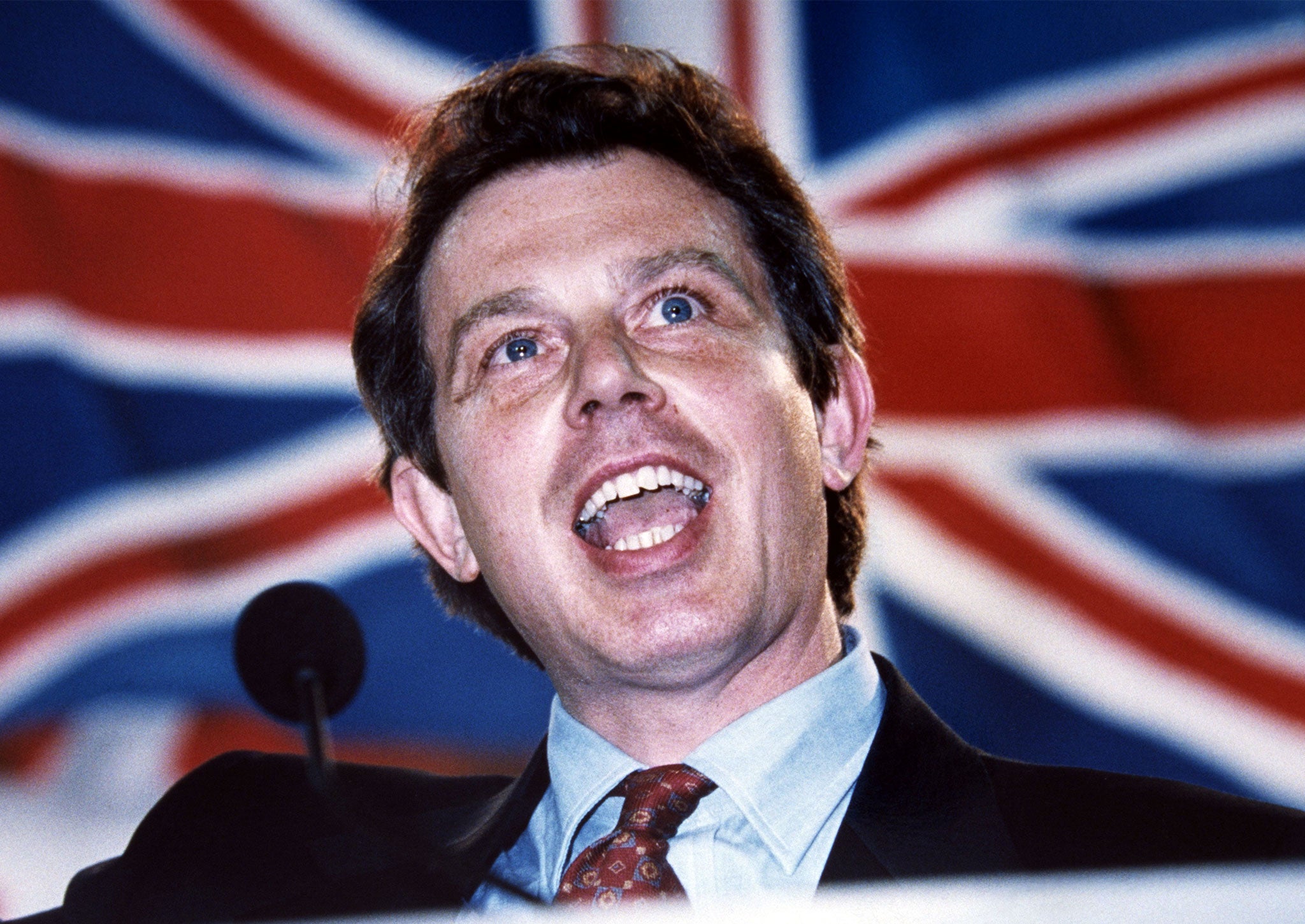What the UK needs right now is the radical Tony Blair it had in the nineties
Before the Iraq War sullied his legacy, Blair was the sort of inspirational leader that Ed Miliband only wishes he could be

What the world needs now is Tony Blair. He’s the leader that can galvanise the left, put an end to political disenfranchisement, negotiate Scottish devolution, prevent the country from retreating to Europe’s side lines and solve the low-pay problem.
I’m not talking about the Tony we know now, his legacy sullied by the Iraq war, but the earnest radical we saw speaking at the 1996 conference before Labour’s landslide election victory.
Blair’s government brokered the Good Friday Agreement, introduced the National Minimum Wage act and established the Scottish parliament in its first few years. More than parallels with the issues we’re struggling with today, he united the left and provided the kind of break from cynical politics Westminster’s crying out for right now.
It’s surprising how many similarities there are between the topics tackled by the two Labour leaders in their pre-election speeches, and how they both shared the same background of economic discontent. As talked about taking a break from the political norm and highlighted the issues with low wages. Blair’s promise for a windfall tax grab on utility companies was replaced in kind by the mansion tax. Miliband addressed the Scotland and Wales’ place in the union, while Blair spoke of establishing parliaments there.
One of Miliband’s many ordinary people was a 20-year-old apprentice auto-electrician. Likewise, Blair’s was a self-employed Ford Sierra driving electrician.
Blair made a covenant of 10 vows, which was in some respects analogous to Miliband’s 14-strong “Together we…” list. And coincidentally, Miliband appears to have nicked his "I look a lot older this year" joke from Blair’s last conference speech as leader.
So far, so similar. But here's the big question. Why was Blair always so much more inspiring?
Is it just because he had, you might say, a habit, of enunciating his sentences, a bit, like this? Has the 24-hour news cycle and snide-filled Twitter commentary hampered leaders’ ability to carry a conference?
I don’t think so. Miliband’s regularly captured the media’s imagination (if not the general public’s) and dictated the narrative of conference season
It’s only a year since we were gushing over his move to ditch his notes and promise to freeze energy prices in what was called his “best ever” speech. And in 2012, he stole the initiative with the One Nation Labour re-brand.
The problem isn’t about his oratory capabilities or his ideas, it’s more about his long-term performance in opposition. He hasn’t successfully challenged the Tory narrative on the economy and he failed to grab the tiller when Westminster started drifting into obscurity.
When we vote it’s often based on an almost sub-conscious amalgamation of all the things we know about politicians. Blair captures this perfectly in his 1996 speech: “People judge us on their instincts about what they believe our instincts to be.”
It’s a big ask for Miliband to re-write that script now, four years down the line. To convince us that it’s better to stay in Europe, to offer an economic platform we can believe in and become a leader that offers an alternative to Westminster’s status quo.
As much as he worked to address the public’s perception about politics in last week’s speech – “…what people are actually saying to us is this country doesn’t care about me. Our politics doesn’t listen. Our economy doesn’t work and they’re not wrong, they’re right and this Labour Party is going to put it right” – I fear it’s too late for him.
This weekend’s Independent-ComRes poll shows a mere 25 and 19 per cent of the public has a “favourable” view of David Cameron and Ed Miliband respectively. They are both tied to the disappointment we feel about politics, neither offer the kind of hope Tony Blair did in the late 90s.
That’s not to say Labour won’t win, it’s just to say that he’s not going to be the break from cynicism he’s advocating. And, although I might have a slightly rose-tinted perspective on Blair’s early years, it’s hard not to want a return to that kind of leader when you think about what’s on offer today.
Join our commenting forum
Join thought-provoking conversations, follow other Independent readers and see their replies
Comments
Bookmark popover
Removed from bookmarks